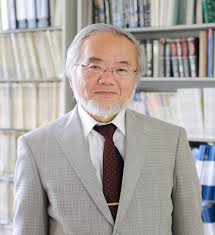A Japanese Cell Biologist Wins Nobel Prize in Physiology or Medicine
Yoshinori Ohsumi, a cell biologist and an honorary professor at the Tokyo Institute of Technology, won this year’s Nobel Prize in Physiology or Medicine On October 3. After becoming the twenty-fifth Japanese Nobel laureate, he said, “it was my childhood dream to win a Nobel Prize and it is the greatest honor.” Dr. Oshumi’s research focused on autophagy, a process in which a cell degrades its damaged parts to provide nutrients for renewal. Before Oshumi’s work, this area of research had remained an enigma among the scientific community. In 1976, he first began his experiment with baker’s yeast in a research lab at Rockefeller University in New York. He continued his experiments with yeast after returning to the University of Tokyo, his alma mater, as a professor.
He studied the degradation process in baker’s yeast through microscopic lenses to identify genes responsible for autophagy. The Nobel Assembly at Karolinska Institute announced that Ohsumi’s “paradigm-shifting research” in the 1990’s brought autophagy’s fundamental significance to light. His findings paved the way to the development of treatments for diseases including cancer, Parkinson’s disease, and Type 2 diabetes. After winning the prize, Dr. Ohsumi shared in a news conference, “I have fun doing what others don’t do and it’s fun to do without knowing where things will go.”

